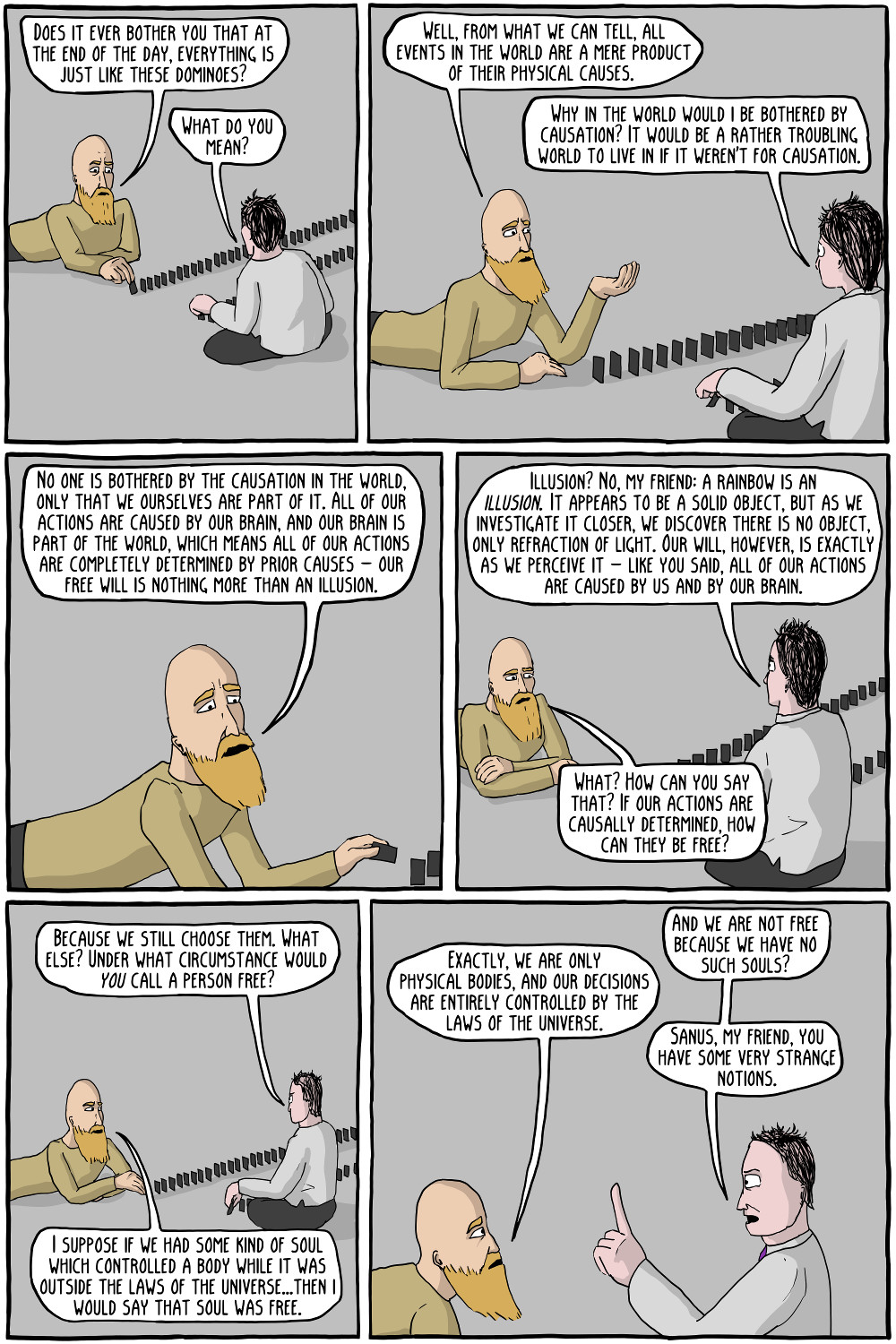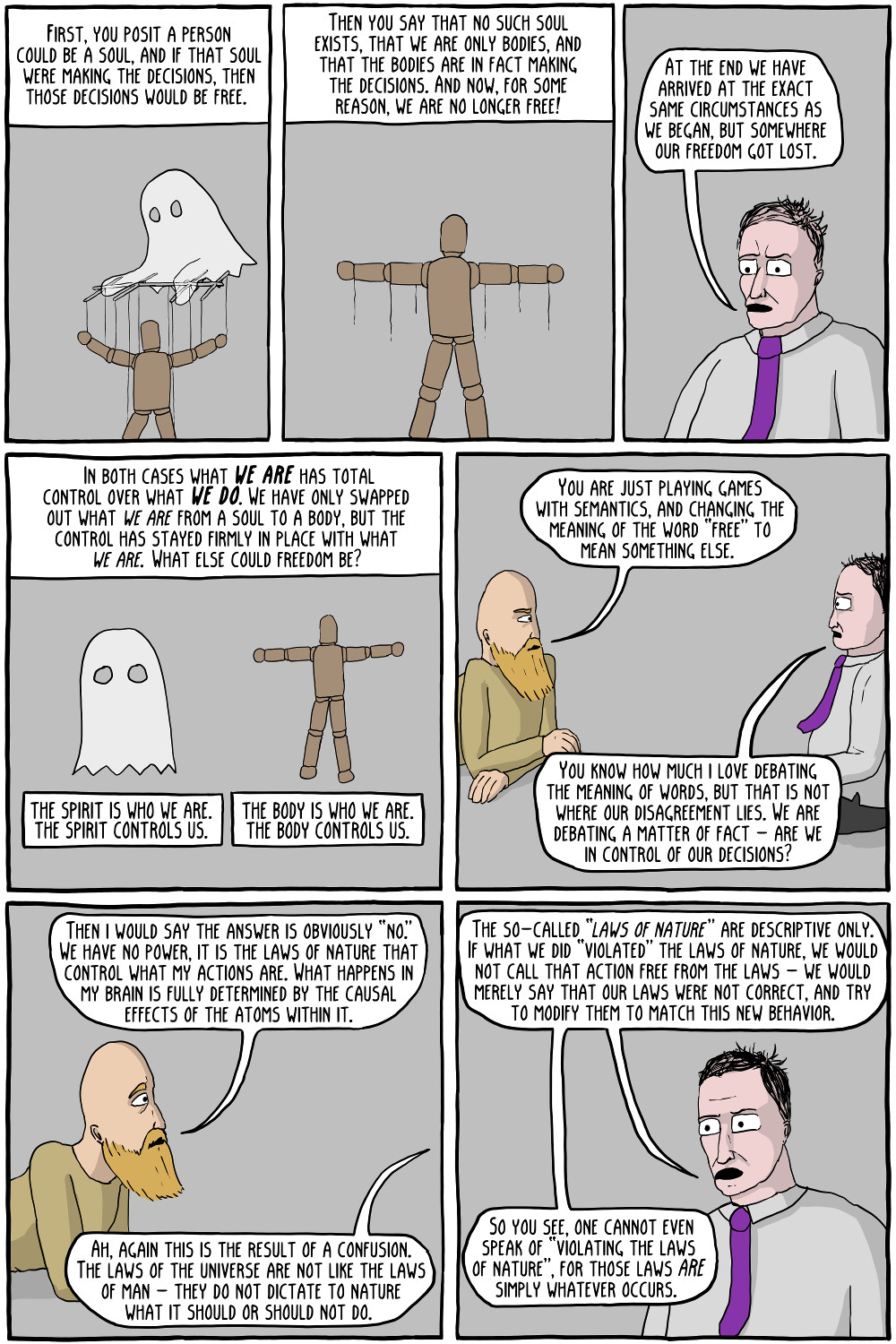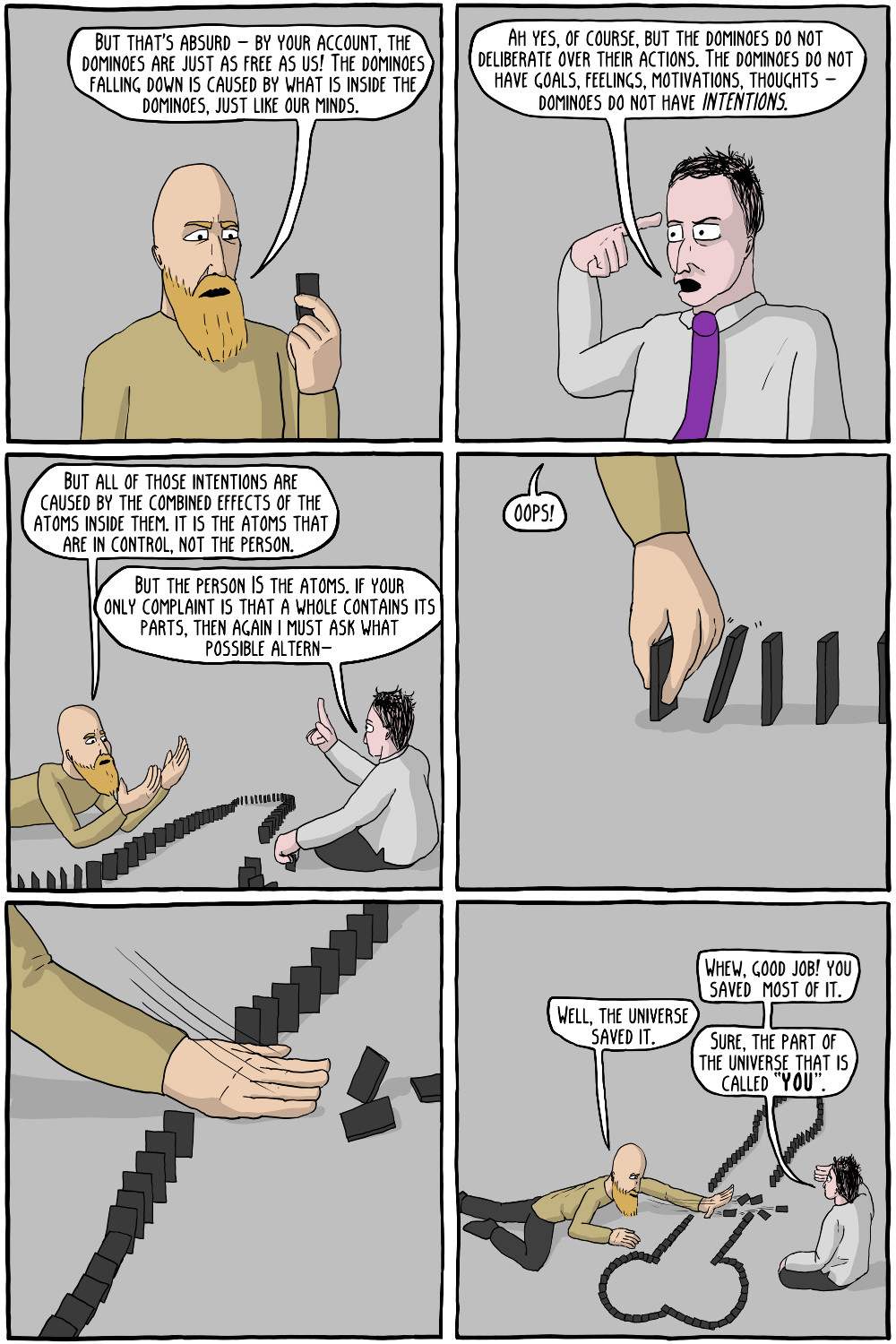

User Controls
Potential problem with the quantum "zero net energy" explanation for the existence of the universe
-
2017-10-01 at 11:39 AM UTCProblem:
- The law of conservation of energy means energy cannot be generated from nothing.
- The Universe exists.
- The Universe contains energy.
- The Universe cannot exist without introduction of energy from outside of its system, and this requires the intervention of an external power i.e. god
Statement of argument I'm attacking:
- The Universe's net energy is zero
- The net energy is zero because an equal amount of positive and negative energy exist.
- This can be achieved through quantum fluctuations, which can create an equal amount of positive and negative energy, this it creates no energy at all.
Attack of argument:
- a closed, periodic system does not evolve outside of its cyclical evolution (e.g. a sine wave does not change from negative to positive infinity)
- without interactions that introduce outside energy, quantum systems are cyclical.
- such an interaction also involves a cyclical system that should not evolve outside of its periodic evolution.
- there would still need to be an introduction of external energy to cause such a fluctuation, therefore this argument removes the problem by one degree, rather than solving it.
Post last edited by Captain Falcon at 2017-10-01T11:50:32.198003+00:00 -
2017-10-01 at 6:57 PM UTCBupm
-
2017-10-01 at 6:57 PM UTCyou know most aren't going to read this.
Not trying to be rude -
2017-10-01 at 7 PM UTC
-
2017-10-01 at 7:09 PM UTCkk so
- The law of conservation of energy means energy cannot be generated from nothing.
- The Universe exists.
- The Universe contains energy.
- The Universe cannot exist without introduction of energy from outside of its system, and this requires the intervention of an external power i.e. god
Doesn't that just imply then that there was something before the Universe? Which donated energy? Outside of our Universe the laws of physics don't really apply. And i know this is kind of a cop-out but i don't think the initial conditions imply the conditions of the argument you are attacking in the first place.
Anyway, i don't fucking know, i'm not a physicist. -
2017-10-01 at 7:28 PM UTC
Originally posted by Sophie Doesn't that just imply then that there was something before the Universe? Which donated energy? Outside of our Universe the laws of physics don't really apply. And i know this is kind of a cop-out but i don't think the initial conditions imply the conditions of the argument you are attacking in the first place.
Anyway, i don't fucking know, i'm not a physicist.
Well so first of all, you are correct. When scientists like Lawrence Krauss give the "universe from nothing" idea, they define the universe by it's beginning at the big bang and what's currently possible for us to ever reach or observe. This is what makes the argument unfulfilling to me, and my own argument is intended to articulate that in a logical manner, rather than just making the statement informally; the problem is only removed one step.
Secondly, you are correct in saying that this is how the argument is usually addressed, but this is literally just special pleading, and an unfalsifiable claim unto itself, and there is evidently no resolution to it but "naturalist" claims kind of jackhammer it like it's definitely a viable point.
For example, one argument is that there does not need to be a first cause, you can remove the problem one step, infinitely many times, and thus all events are caused, with no need for a first cause.
This has its own logical problems e.g. if there is a causal chain that stretches back infinitely, we can assume that all of these events must have "happened" for these events to make sense, and since they are cause-and-effect, they must naturally happen in a strict mly sequential temporal progression (because axiomatically, no cause can happen after its effect, or at the same time as its effect). So if we stretch that chain backwards, as the link in the causal change increase, the time approaches between our "present" state and an event that is infinitely many steps back is literally infinity, and therefore we could not even arrive at the present moment in time unless A) we were magically dropped into an arbitrary point in the timeline at some point, and that's our defacto "beginning", and thus there is a finite time between then an now or B) The universe does have a special pleading uncaused event creation event, which we call god.
Pick your poison -
2017-10-01 at 7:42 PM UTC
-
2017-10-28 at 4:58 PM UTCBuPm
-
2017-10-28 at 5:08 PM UTCthe universe contained mass.
mass is energy.
the universe came preloaded with energy.
whats wrong ??? -
2017-10-28 at 5:31 PM UTC
-
2017-10-28 at 5:55 PM UTCCan you explain negative energy some more? I’m not following it.
-
2017-10-28 at 6:38 PM UTCHonestly, no jokes, I find this thread offensive. I don't believe in conservation of matter. I think we have too many conservatives as it is.
-
2017-10-28 at 7:15 PM UTCThere must have just always been matter floating about in the infinite past, perhaps so sparse that it took a number of years far far beyond our highest recognized number before two matters collided and our universe was birthed.
-
2017-10-28 at 7:21 PM UTCYou can't get something from nothing, unless it comes from another plane of existence, and even then it still comes from somewhere; you can't beat that basic premise with any kind of double-talk or smoke and mirrors.
-
2017-10-28 at 7:24 PM UTCWhat if it's the opposite in other univii and there its 'you can't have nothing without something'?
-
2017-10-28 at 7:26 PM UTCThe theory that best fits the available facts is that everything was created from nothing.
-
2017-10-28 at 9:07 PM UTC
-
2017-10-28 at 9:38 PM UTC
-
2017-10-29 at 2:07 AM UTC
-
2017-10-29 at 3:56 AM UTC


